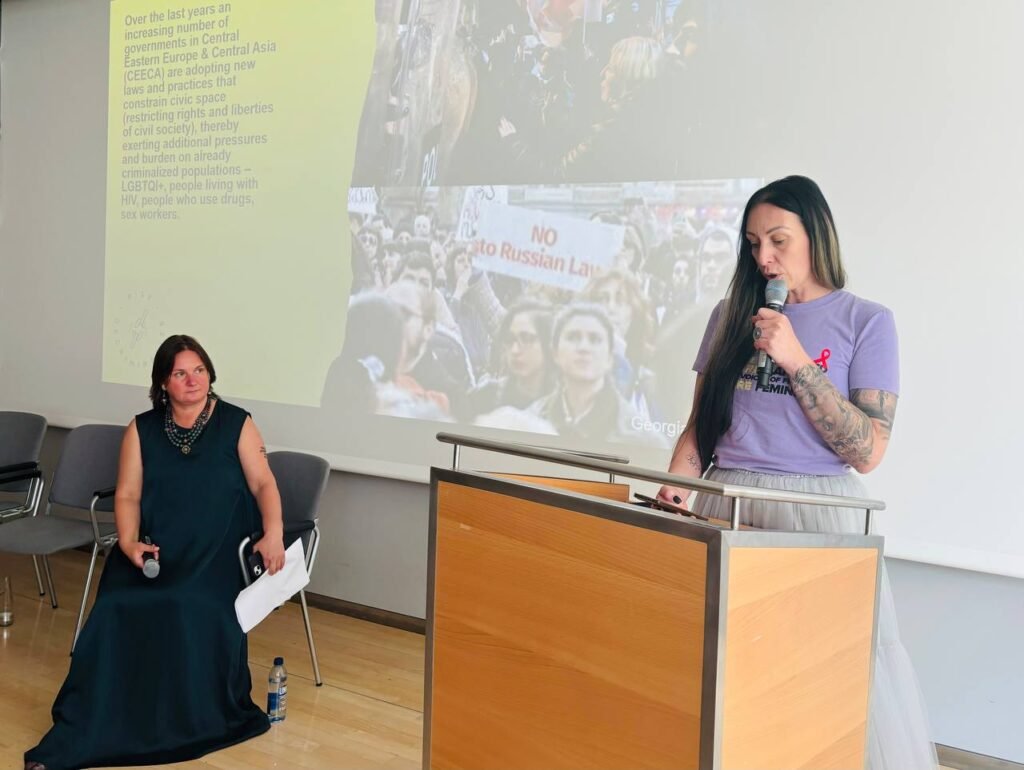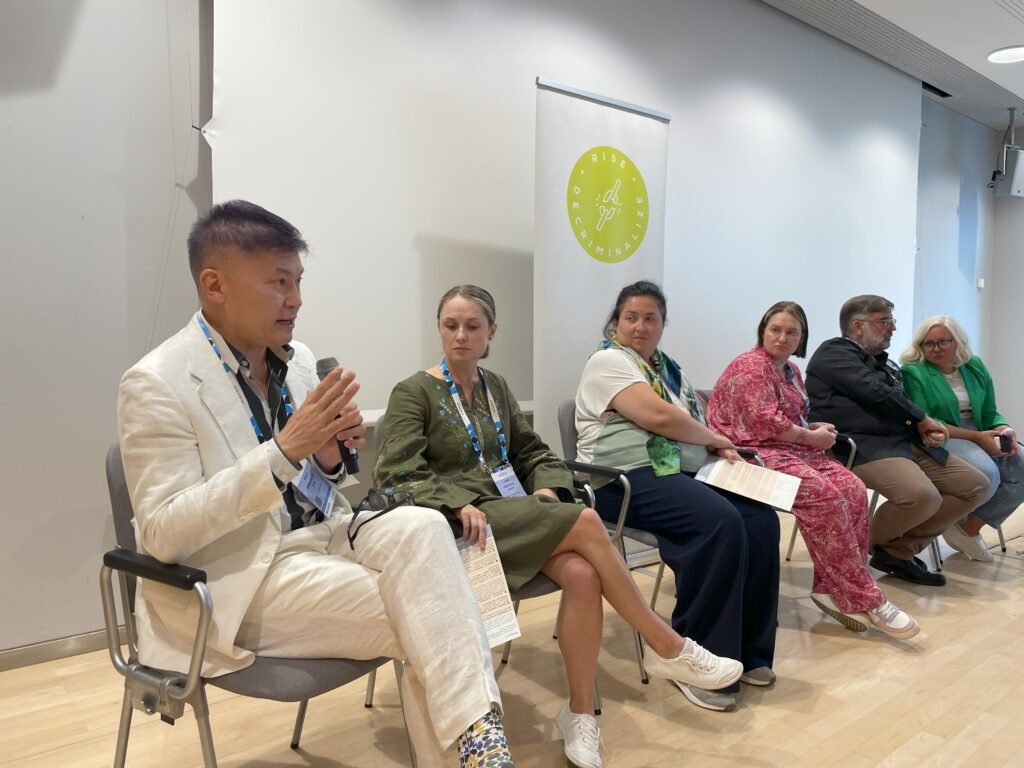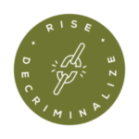
“Bad policies and bad laws are bad, simply regardless of where they are. They must be fought”, said the Ambassador Dr. John N. Nkengasong, Ambassador-at-Large and Coordinator of United States Government Activities to Combat HIV/AIDS, PEPFAR, at the event organized by the Rise & Decriminalize Movement at the 25th International AIDS Conference.
The event “Secure the Future: Civil Society and Human Rights Imperative for Public Health and HIV Response in Central and Eastern Europe and Central Asia” aimed to hold the focus on the shrinking space for civil society and communities in the CEECA region and its effects on human rights and health, including HIV, responses.
45 representatives of civil society, communities, development agencies, donors and high-level officials, including Ambassador Dr. John N. Nkengasong, Ambassador Anne-Claire Amprou (Ambassador for Global Health, Ministry of Europe and Foreign Affairs, France), Christine Stegling (UNAIDS Deputy Executive Director), Bience Gawanas (Board Vice Chair of the Global Fund), EJAF, RCF and AIDS Fonds gathered to express the support for communities and the Communique initiated by the Rise & Decriminalize Movement.

Our dear colleagues and activists – Alla Bessonova, Ganna Dovbakh, Lasha Nonikashvili, Lyubov Vorontsova, Medea Khmelidze, Stasa Plecas, Svitlana Moroz, Velta Parkhomenko, Vitaly Djuma – made sure that all know what the communities are dealing with in the EECA region.
Over the past years, various CEECA countries have intensified efforts to restrict civil society, especially in areas related to HIV services and advocacy for evidence-based health and drug policies, while human rights abuses have been on the rise.
Punitive legal environments, inadequate access to justice, and the absence of enabling policies, along with laws targeting people living with HIV and key populations (people who use drugs, sex workers, LGBTQI+), exacerbate inequalities and undermine the HIV response, severely affecting their health.
In recent developments, Kyrgyzstan and Georgia have adopted new “foreign agents” laws. These laws mandate that civil society and community organizations receiving foreign funding must register with government authorities, risking cessation of their activities. This poses a serious threat to organizations engaged in advocacy, community development, documentation of human rights violations, and educational campaigns on LGBTQI+ and harm reduction issues within the context of HIV response. Additionally, there has been a widening of initiatives to restrict LGBTQI+ movements across the region.
Russian aggression against Ukraine has significantly influenced the regional HIV response, exacerbating vulnerabilities to HIV and TB. It has posed challenges to service provision not only in Ukraine but also in countries affected by the refugee crisis and throughout the broader region.
Urgent international attention and support are essential to safeguarding community-led HIV responses, protecting human rights, and ensuring sustainable health outcomes across Central and Eastern Europe and Central Asia.

The Rise & Decriminalize Movement, established by the five regional community-led networks – ECOM, EHRA, ENPUD, EWNA, SWAN – respond to this situation by initiating the Communique “Secure the Future: Civil Society and Human Rights Imperative for Public Health and HIV Response in Central and Eastern Europe and Central Asia” asking the international community, development agencies, donor governments and private donors to acknowledge the gravity of the situation in the CEECA region, imperative to support civil society and communities, shift and re-strategies funding, and also coordinate efforts.
“Lets stay unified to fight for human rights”, said the Ambassador Anne-Claire Amprou, for Global Health, Ministry of Europe and Foreign Affairs of France and this is our hope to stay unified and call upon others to unitedly coordinate to ensure meaningful dialogue in CEECA countries around the importance of sustainability of services, community leadership in all areas concerning their lives and livelihoods, decriminalization as a pivotal aspect of human rights and ensuring space for civil society.
Join us – support the Communique now!
